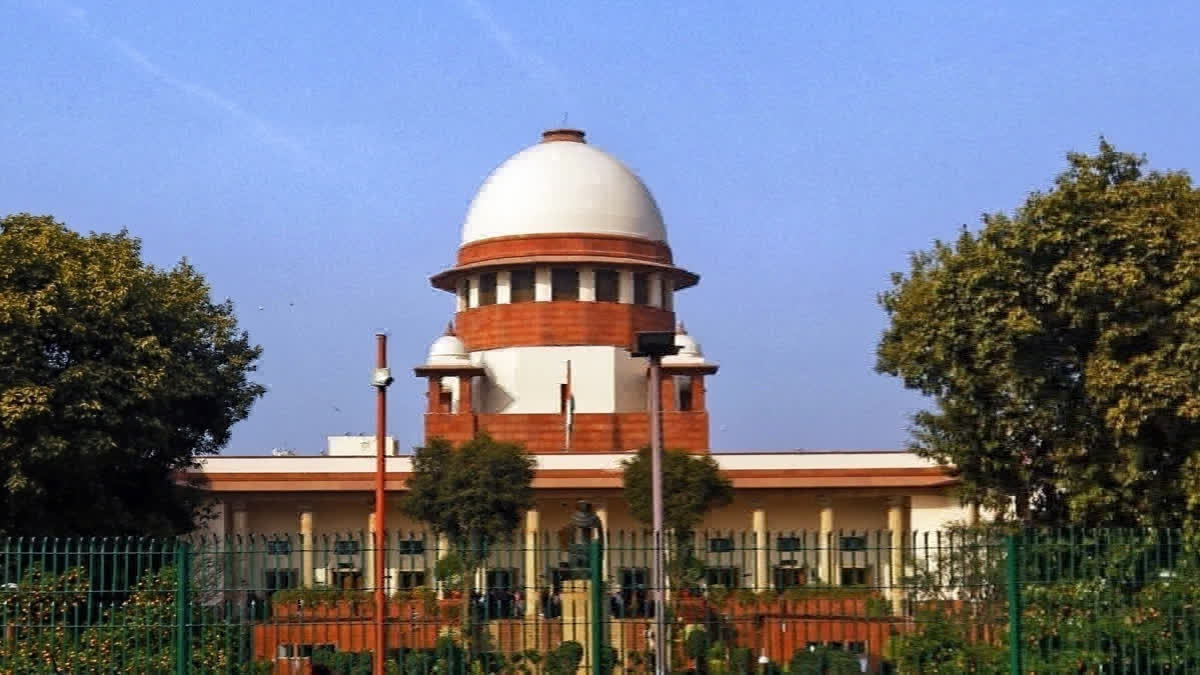New Delhi: The Supreme Court on Tuesday deplored the conduct of the central government for dragging a widow of a soldier, who died in harness, to the court in connection with liberalised family pension, and stressed that the decision-making authority ought to have been sympathetic to her.
A bench comprising Justices Abhay S Oka and Augustine George Masih imposed a cost of Rs 50,000 on the Centre for filing an appeal challenging an Armed Forces Tribunal (AFT) order, which granted a liberalised pension to the widow of a soldier who died during a counter-terrorism patrol in Jammu and Kashmir.
The bench said: "In our view, in a case like this, the respondent ought not to have been dragged to this court, and the decision-making authority of the appellants ought to have been sympathetic to the widow of a deceased soldier who died in harness".
"Therefore, we propose to impose costs quantified as Rs 50,000, which will be payable to the respondent within a period of two months from today," said the bench.
During the hearing, Additional Solicitor General Vikramjeet Banerjee pointed out that the Liberalised Family Pension (LFP) is governed by the order dated 31st January 2001 issued by the Director (Pensions) of the Ministry of Defence.
He submitted that LFP is granted in case of death of armed forces personnel under the circumstances mentioned in categories D and E of paragraph 4.1 of the order dated 31st January 2001. He submitted that, admittedly, category D does not apply to the deceased. He submitted that the case of the deceased is not covered by any of the clauses in category E. He submitted that as the deceased died due to cardiopulmonary arrest, his case was classified as a 'physical casualty' attributable to military service, and, therefore, the respondent was paid a special family pension.
"It is not disputed that on the date of the death, the deceased was posted with his battalion in Jammu and Kashmir as part of Operation Rakshak. He was part of an Area Domination Patrol for domination of the Rangwar gap in the proximity of LC. He was doing duty from 1.00 a.m. to 3.30 a.m," said the bench.
The bench said the certificate issued by the commanding officer records the following facts: a) The deceased was working in extreme climatic conditions on the date of his death; b) He was part of Operation Rakshak, and he was also part of the routine Area Domination Patrol close to LC. There were extreme climatic conditions at that place; and c) When the deceased became breathless, his condition was such that he needed immediate evacuation. However, immediate evacuation by air could not be done due to bad weather conditions. Ultimately, he was taken on foot, and when the team carried him to Chowkibal's MI room, he was declared dead.
The bench said the death can be attributed to illness caused by extreme climatic conditions and as per clause 1 (g) of Appendix 'A' of the Army Order 1 of 2003, the case will fall in 'battle casualties'.
"The reason is that the deceased was operating near LC in extreme climatic conditions. He was part of Operation Rakshak and was on duty near LC. The casualty caused by illness due to climatic conditions is covered by clause 1 (g). In this case, the respondent's husband was a victim of illness caused by extreme climatic conditions. Therefore, the case of the deceased will fall in the category of 'Battle Casualties'", said the bench.
The top court’s judgment came on a plea filed by the Centre challenging the tribunal's order, which directed that LFP along with arrears be paid to the widow from January 2013.
Naik Inderjeet Singh, suffered a cardiac arrest while on patrol in extreme weather conditions in January 2013. Initially, his death was classified as a "battle casualty" but later classified as a "physical casualty" attributable to military service.
His widow was granted all terminal benefits, including a special family pension but as she was denied the LFP, she moved a plea before the AFT. The AFT allowed her application and directed the payment of LFP and ex-gratia lumpsum amount payable in case of battle casualties dying in harness. The Centre and the Army moved the apex court against this decision.



